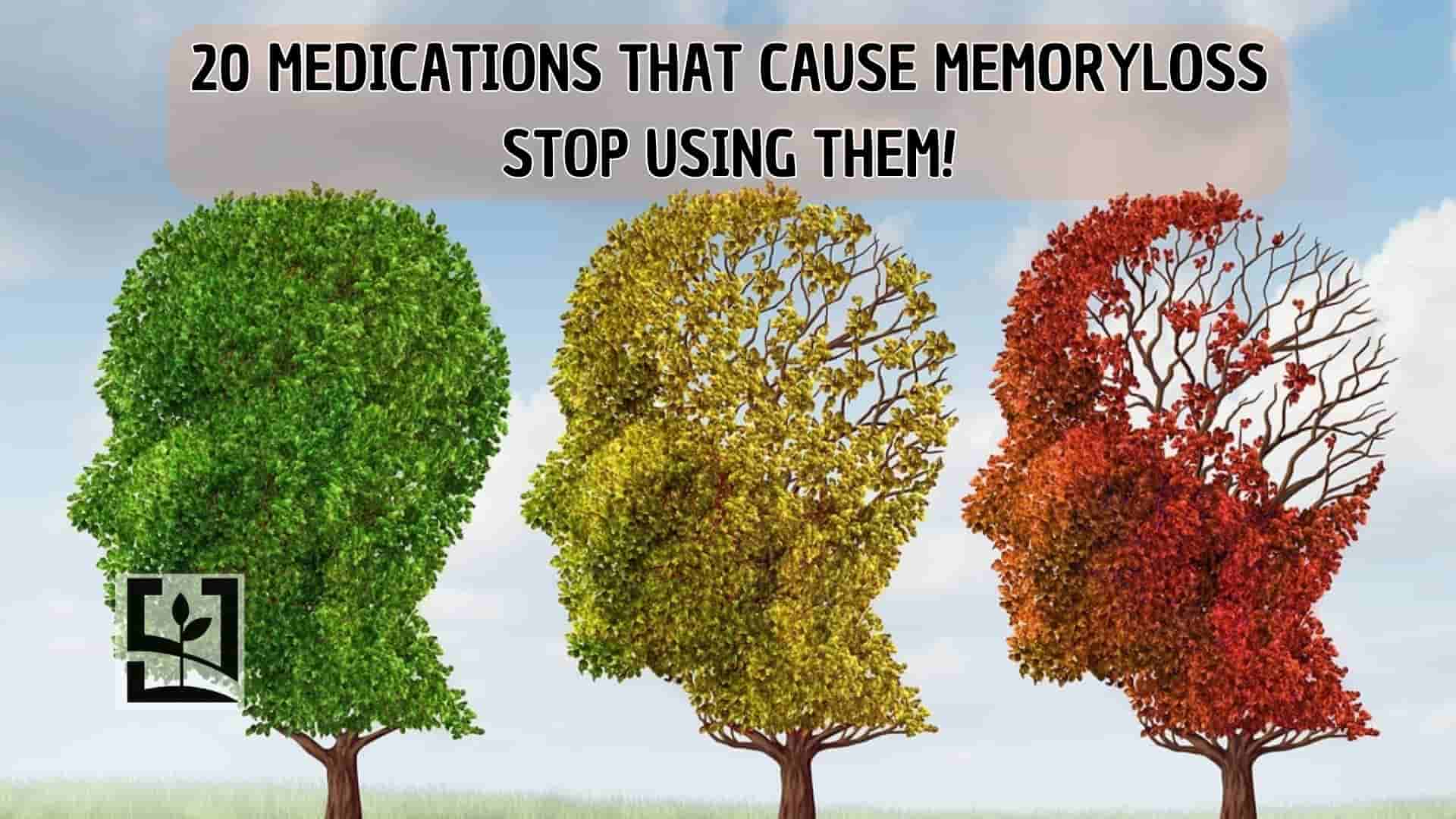Of course, I’m going to follow the same pattern as my previous article and go more in-depth about the 20 drugs that can cause memory-related side effects:

introduce:
Medications are effective in treating a variety of health conditions, but it is important to understand that some treatments can cause adverse effects, including potentially memory problems. These side effects vary from person to person. If you are concerned that a medication may cause memory loss, you should consult a health care professional before changing your medication habits. This article will look at 20 medications that have been linked to negative memory-related effects. It is important to understand that this is not a comprehensive list and individual experiences may vary.
Medicine List:
1. Benzodiazepines (e.g., Xanax, Valium): These medications are often used to treat anxiety and sleep problems. They can sometimes cause short-term memory loss in large doses.
2. Tricyclic antidepressants: Some antidepressants, especially tricyclic antidepressants, are associated with memory and cognitive dysfunction.
3. Antipsychotics: Some antipsychotics are associated with cognitive impairment, such as memory problems.
4. Over-the-counter antihistamines (such as diphenhydramine): These over-the-counter medications, widely available without a prescription, can cause drowsiness and short-term memory problems.
5. Prescription sleeping pills: Prescription sleeping pills can sometimes cause memory problems if they are not taken as directed, especially if they are abused.
6. Muscle relaxants: The sedative effect of muscle relaxants can impair memory.
7. Opioids and other painkillers can affect cognitive function and memory.
8. Some antihypertensive medications, such as beta-blockers, are associated with adverse cognitive effects.
9. Anticholinergic medications: These medications are used to treat a variety of conditions and have the ability to affect certain brain chemicals, potentially causing memory-related side effects.
10. Lithium: Although lithium can be used to treat bipolar disorder, it can sometimes cause cognitive impairment, including memory problems.
11. Some anti-epileptic drugs: Some anti-epileptic drugs are associated with memory and cognitive dysfunction.
12. Corticosteroids: High doses or prolonged use of corticosteroids can impair memory and cognition.
13. Cholesterol-lowering drugs (statins): Some statins, used to lower cholesterol levels, have been linked to negative cognitive effects in a small number of people.
14. Parkinson’s disease medications: Some Parkinson’s disease medications can cause cognitive impairment, including memory problems.
15. Chemotherapy drugs: Some cancer treatments, especially those that cross the blood-brain barrier, can have effects on cognitive function.
16. Some antiviral medications (such as HIV treatments): Antiviral medications used to treat diseases like HIV can have cognitive effects.
17. Immunosuppressive medications: Immunosuppressive medications can sometimes cause cognitive difficulties.
18. Other anti-anxiety medications (besides benzodiazepines): Besides benzodiazepines, some anti-anxiety medications can cause memory-related side effects.
19. Medications used to treat attention-deficit/hyperactivity disorder (ADHD): Some ADHD medications can impair memory and cognitive abilities.
20. Hormone replacement therapy (especially during menopause): Hormone replacement therapy, commonly used during menopause, can affect cognition and cause memory problems.
Disclaimer:
Before we proceed further, it is important to note that the content provided in this article is for general information purposes only and is based on publicly available sources. It is not intended to replace professional medical advice, diagnosis or treatment. If you are concerned about your health or memory loss, it is important to speak to a trained health care practitioner for a thorough assessment and support if any of the above symptoms occur. Everyone reacts differently to medications, and only a health care professional can provide personalized advice and treatment options. Never stop or change your medications without consulting your doctor as this may have serious consequences for your health.
in conclusion:
Understanding the effects of medications on memory is important for making health care decisions. If you think a medication is interfering with your memory, contact your doctor immediately. They can provide personalized advice, assess the overall benefits and harms of a medication to your health, and research alternative solutions if necessary. When using medications to treat medical problems, it is important to prioritize your health and seek professional help to get the best results.

